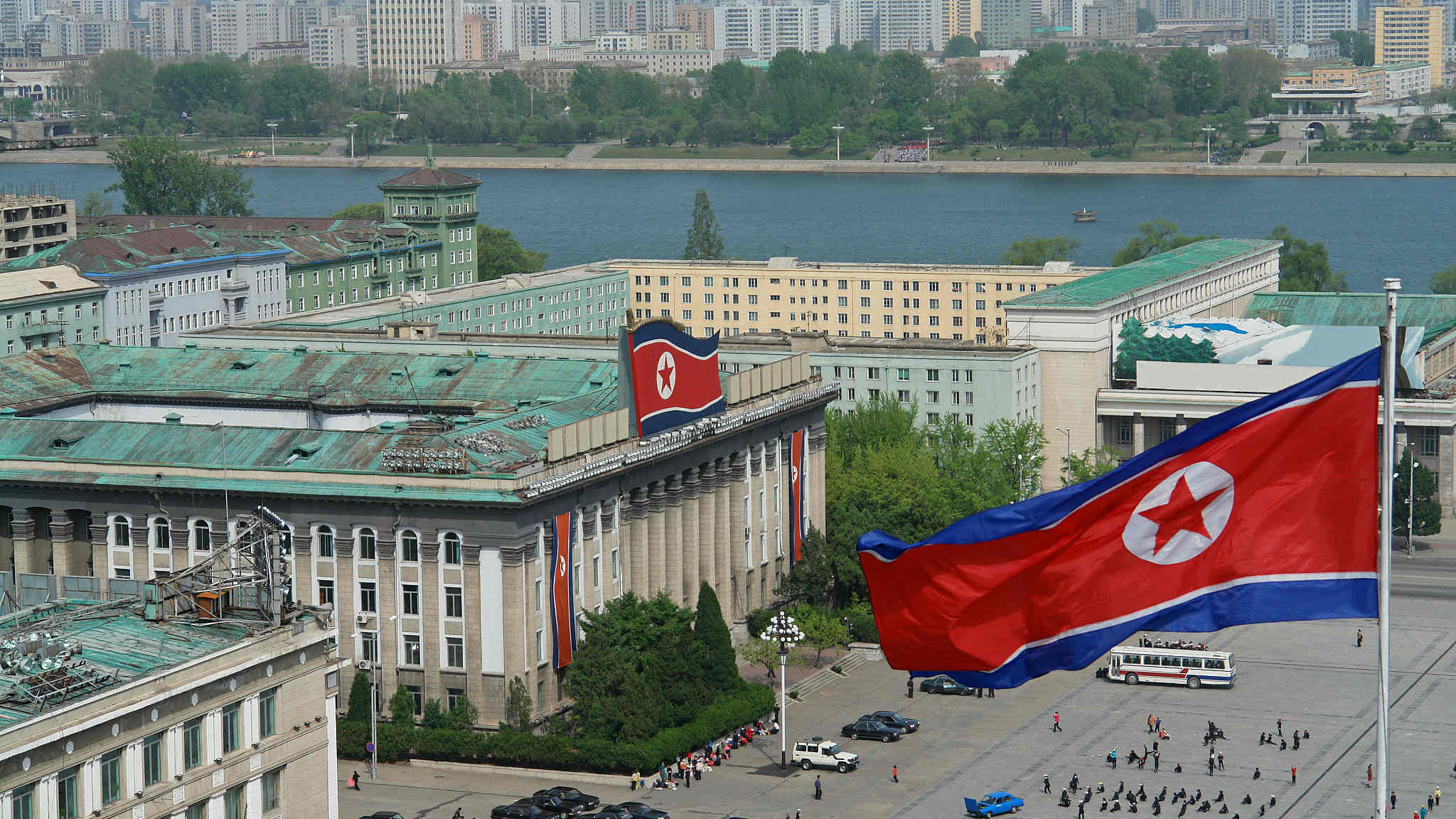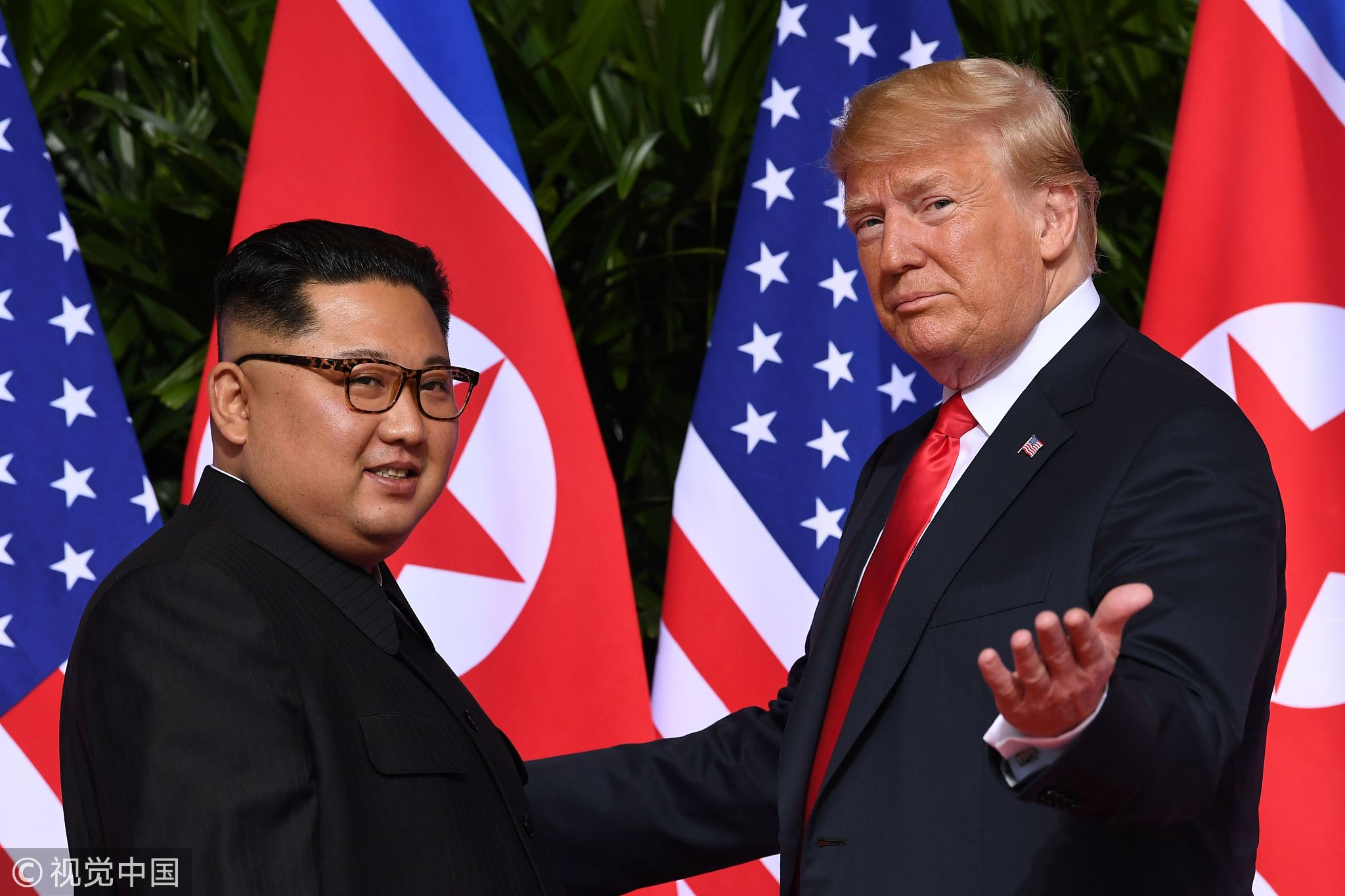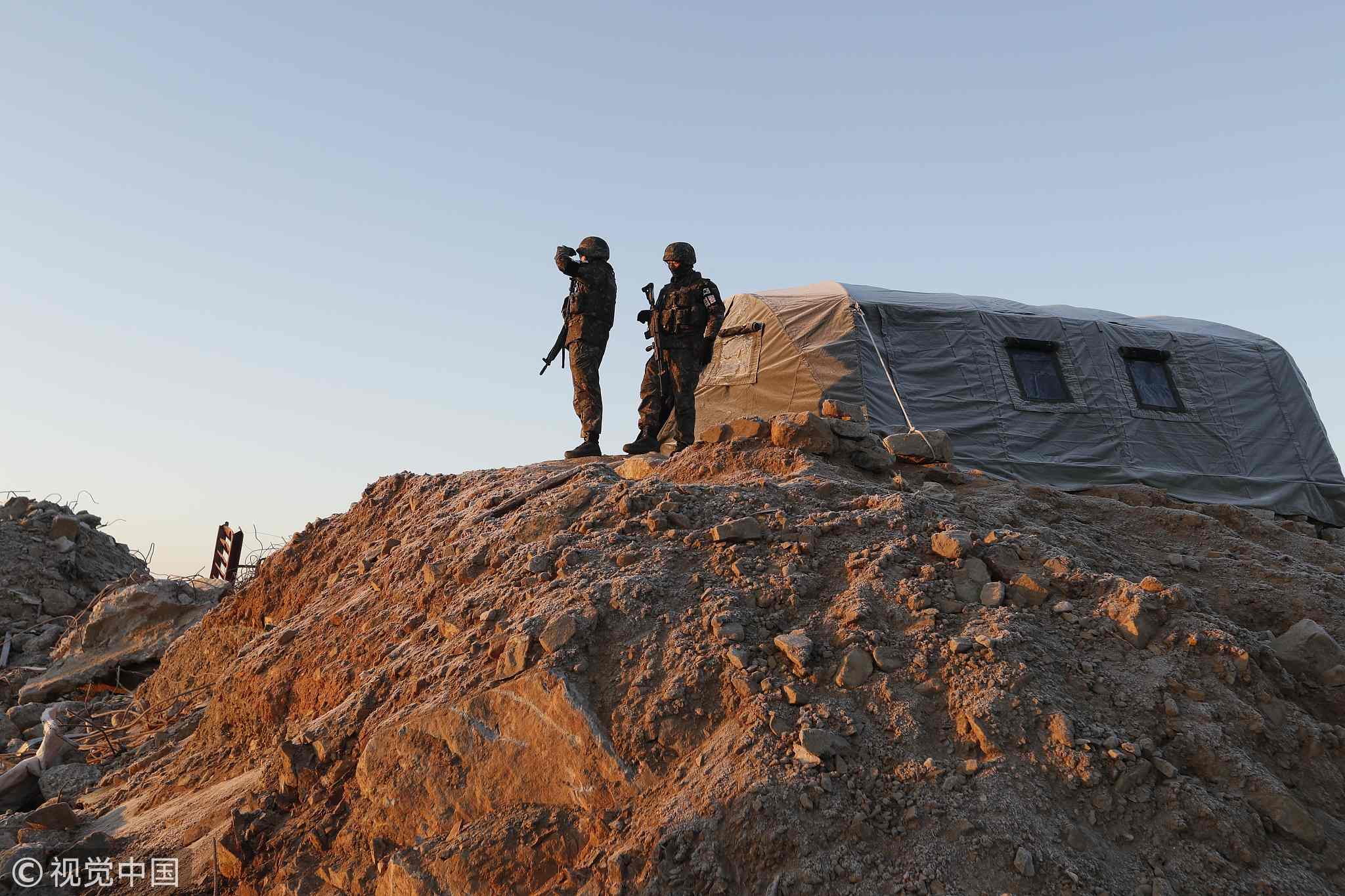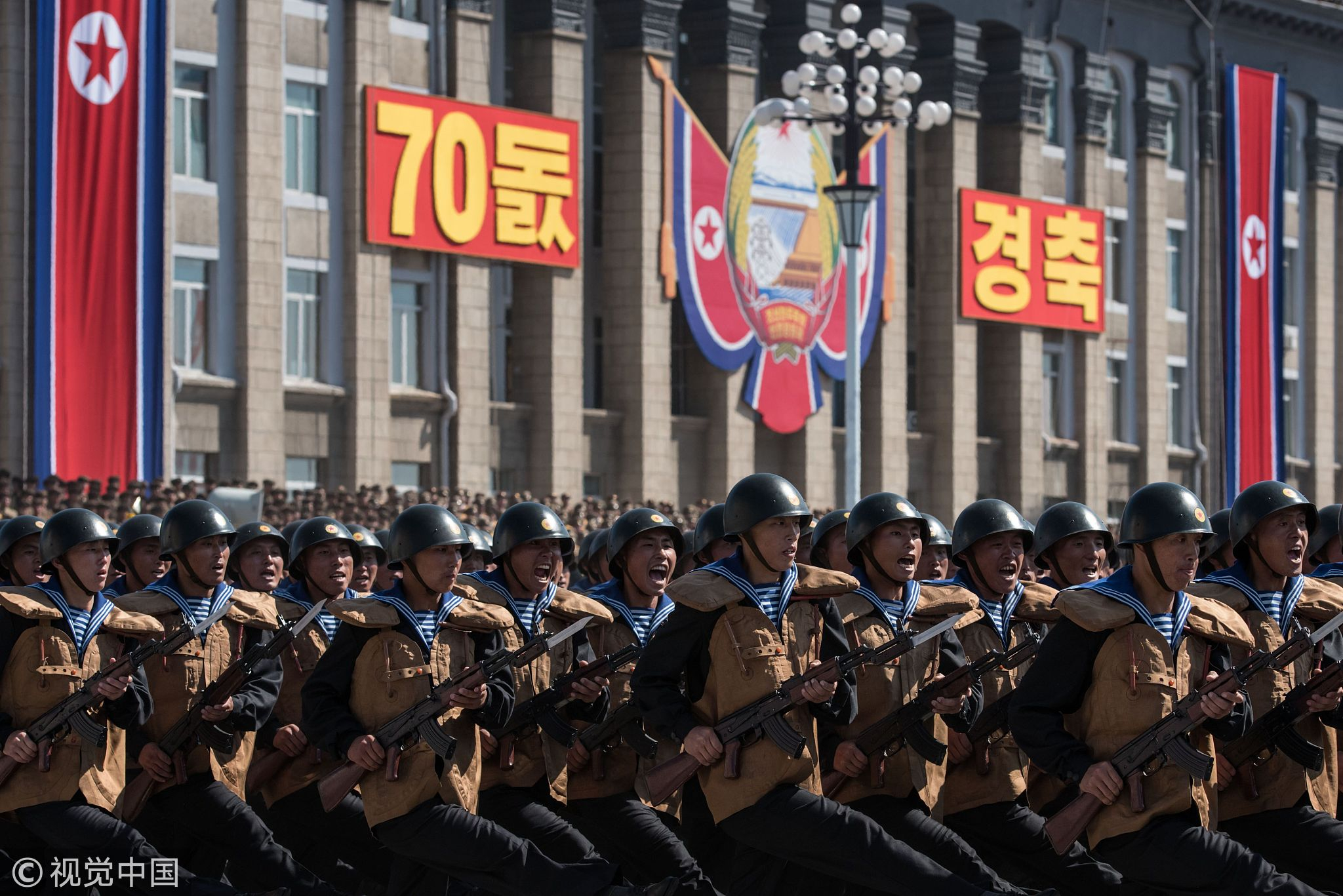
Opinions
18:31, 21-Dec-2018
Tensions ease on Korean Peninsula in 2018, but more international input is needed
Updated
17:39, 24-Dec-2018
Wang Junsheng

Editor's note: With 2018 drawing to a close, it is time to review the many ups and downs that occurred in the international community. Among others, the Korean Peninsula has been thrown into the spotlight, witnessing remarkable progress in Democratic People's Republic of Korea relations with the Republic of Korea and the U.S.. In this article for CGTN, Wang Junsheng, an associate research fellow at the National Institute of International Strategy at the Chinese Academy of Social Sciences, shares his insights.
Since 2018, tension on the Korean Peninsula has greatly eased. Both U.S. President Donald Trump and Kim Jong Un, top leader of the Democratic People's Republic of Korea (DPRK), have demonstrated sincerity and decisiveness in attempting to solve the denuclearization issue. The DPRK and the U.S. have also stopped tit-for-tat provocations in both action and language.
The DPRK did not conduct any testing of nuclear weapons or missiles for the whole of 2018, the first moratorium since 2006 when the country conducted its first nuclear test. The Republic of Korea (ROK) and the U.S. also suspended their joint military exercises, which is a rarity too. On September 29, Trump boasted about his improved relationship with Kim Jong Un and joked that they “fell in love.” Since 2018, there has also been a series of cordial diplomatic interactions among various stakeholders of the peninsula, including the DPRK and the U.S..

U.S. President Donald Trump (R) gestures as he meets with DPRK leader Kim Jong Un (L) at the Capella Hotel on Sentosa island in Singapore, June 11, 2018. /VCG Photo
U.S. President Donald Trump (R) gestures as he meets with DPRK leader Kim Jong Un (L) at the Capella Hotel on Sentosa island in Singapore, June 11, 2018. /VCG Photo
In the meantime, however, little progress has been made in addressing the fundamental problems that have plagued the Korean Peninsula for many years. No substantive consensus has been reached on denuclearization. No one even knows when the peninsula will enter the “declaration” stage, the first stage of denuclearization.
The “extreme pressure” exerted by the U.S. on the DPRK has remained. Although the U.S. and the ROK have suspended joint military exercises aimed at the DPRK, and the military agreements between the two Koreas have been signed and the numbers of outposts and armed forces in the joint security area have been greatly reduced, the cold war structures on the peninsula persist without fundamental changes.
This means the joint military exercises between the U.S. and the ROK may restart at any time without substantial adjustment in scale. The reduced military tension between the DPRK and the ROK is subject to DPRK-U.S. relations; the latter heavily dependent on progress on denuclearization on the Korean Peninsula, which is far from clear.
The U.S. and the DPRK diverge on the approach to denuclearization and security. The U.S. insists on seeing the results of substantial denuclearization of the Korean Peninsula first and discussing the security of DPRK later. Its calculation is as follows: Firstly, the DPRK's nuclear weapons are developing fast and will probably be capable of striking the U.S. in the near future; secondly, the U.S. does not trust the DPRK; thirdly, the U.S. is worried that talking about a truce declaration and the establishment of a peace mechanism in the absence of substantial progress on denuclearization sends a “wrong” message to the DPRK and the international community.

ROK soldiers stand guard at a destroyed ROK guard post during a mutual on-site verification of the withdrawal of guard posts along the Demilitarized Zone (DMZ) on December 12, 2018, ROK. /VCG Photo
ROK soldiers stand guard at a destroyed ROK guard post during a mutual on-site verification of the withdrawal of guard posts along the Demilitarized Zone (DMZ) on December 12, 2018, ROK. /VCG Photo
Contrary to the U.S., the DPRK insists on receiving a corresponding reward from the U.S. for every step of the process on denuclearization. It believes that the development of nuclear weapons is a legitimate response to the security threats posed by the U.S.. Moreover, the DPRK thinks that it has already acted on denuclearization this year, but has not yet received any reward from the U.S..
The two parties also disagree on the definition of denuclearization. All statements by the DPRK clearly indicate that it means “the denuclearization of the Korean Peninsula,” which is also the consensus of various stakeholders on the Korean Peninsula issue. Although the U.S. also officially agrees with the “denuclearization of the Korean Peninsula” expression, its government and strategists tend to equate denuclearization with “abandonment of nuclear weapons" by the DPRK.

Korean People's Army (KPA) soldiers march during a mass rally on Kim Il Sung square in Pyongyang on September 9, 2018. /VCG Photo
Korean People's Army (KPA) soldiers march during a mass rally on Kim Il Sung square in Pyongyang on September 9, 2018. /VCG Photo
Therefore, it's wrong to blame the current stalemate on the DPRK or the U.S. alone. The Korean Peninsula issue is intertwined and extremely complicated. Relevant countries should work together to seize the rare opportunity that emerged this year to solve this problem with greater international cooperation.
Firstly, the DPRK and the U.S. do not trust each other, and the ROK alone is not enough to fill the "trust gap" between the two sides.
In addition, history shows that the peninsula situation is at its best when international cooperation flourishes. The peninsula problem is at its core an issue of the DPRK-U.S. relations; but as a regional issue, other countries are also entitled to have legitimate concerns. The format and model of potential international cooperation can be further explored and hopefully, progress will be made in the near future in 2019.
(If you want to contribute and have specific expertise, please contact us at opinions@cgtn.com)

SITEMAP
Copyright © 2018 CGTN. Beijing ICP prepared NO.16065310-3
Copyright © 2018 CGTN. Beijing ICP prepared NO.16065310-3